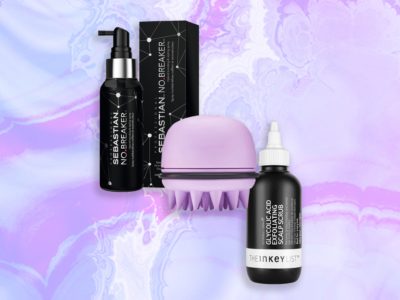
The condition can be complicated to manage, according to Lancer, involving a team of medical experts such as a dermatologist, a psychiatrist, and in some cases, a general surgeon or a colo-rectal surgeon, if a person has HS affecting their anal area. “Living with HS involves meticulous maintenance, repair, rehab, and monitoring, and you have to have a very cooperative patient,” he explains.
Is hidradenitus suppurativa contagious?
The short answer: no. By nature, Lancer says, hidradenitis suppurativa is a noninfectious, non-contagious disease, which means you can’t catch it from another person (thus, if you have HS, you won’t give your condition to someone else).
Hidradenitis suppurativa is sometimes treated with antibiotics, which are usually associated with infection, so there has been some stigma and confusion related to this condition. Lancer says that treatment with antibiotics doesn’t mean HS is an infectious disease. “In the world of skin, many sterile, non-infectious entities are treated with antibiotics because they are anti-inflammatory,” he says.
But one byproduct of HS can pose a risk of infection, under certain conditions. According to Connecticut-based board-certified dermatologist Deanne Mraz Robinson, the sores can develop infections, commonly with staph or strep bacteria. So while hidradenitis suppurativa itself is not a contagious disease, the secondary bacterial infection can theoretically spread to another person. “If there’s pus coming off the lesions and you come into contact with it, you could get the bacterial infection, but you would have to have a cut or an open wound,” Mraz Robinson says.
Most of the time, according to Friedler, HS lesions develop in places covered up by a person’s clothes – underarms, belly folds, under the breasts, or in the groin. If you have skin-to-skin contact with a person who has developed a secondary skin infection, like during sex, you could potentially also get it. But again, Friedler says, you would have to have some compromised skin for that to happen.
How to reduce the risk of infection
To reduce the chances of flare-ups and possible infection, Lancer suggests patients make lifestyle changes that reduce inflammation, such as ensuring ample hydration and good nutrition focused on anti-inflammatory foods, reducing stress levels, limiting alcohol consumption, and quitting smoking. According to Friedler, it’s also helpful for people with HS to wear breathable, cotton-based clothing – items that won’t rub against the skin and create friction.
If you do develop an HS-related infection, Robinson says it’s important to keep the area clean, dry, and properly dressed. And should you come into close contact with someone who has a bacterial infection – like if you’re helping them dress a wound – she recommends wearing gloves or other protective gear to prevent the risk of transmission.
Read more on Hidradenitis Suppurativa.
More information on skin conditions:
Now check out all the ways allergies can make someone’s life different:
Follow Allure on Instagram and Twitter, or subscribe to our newsletter for daily beauty stories delivered right to your inbox.





